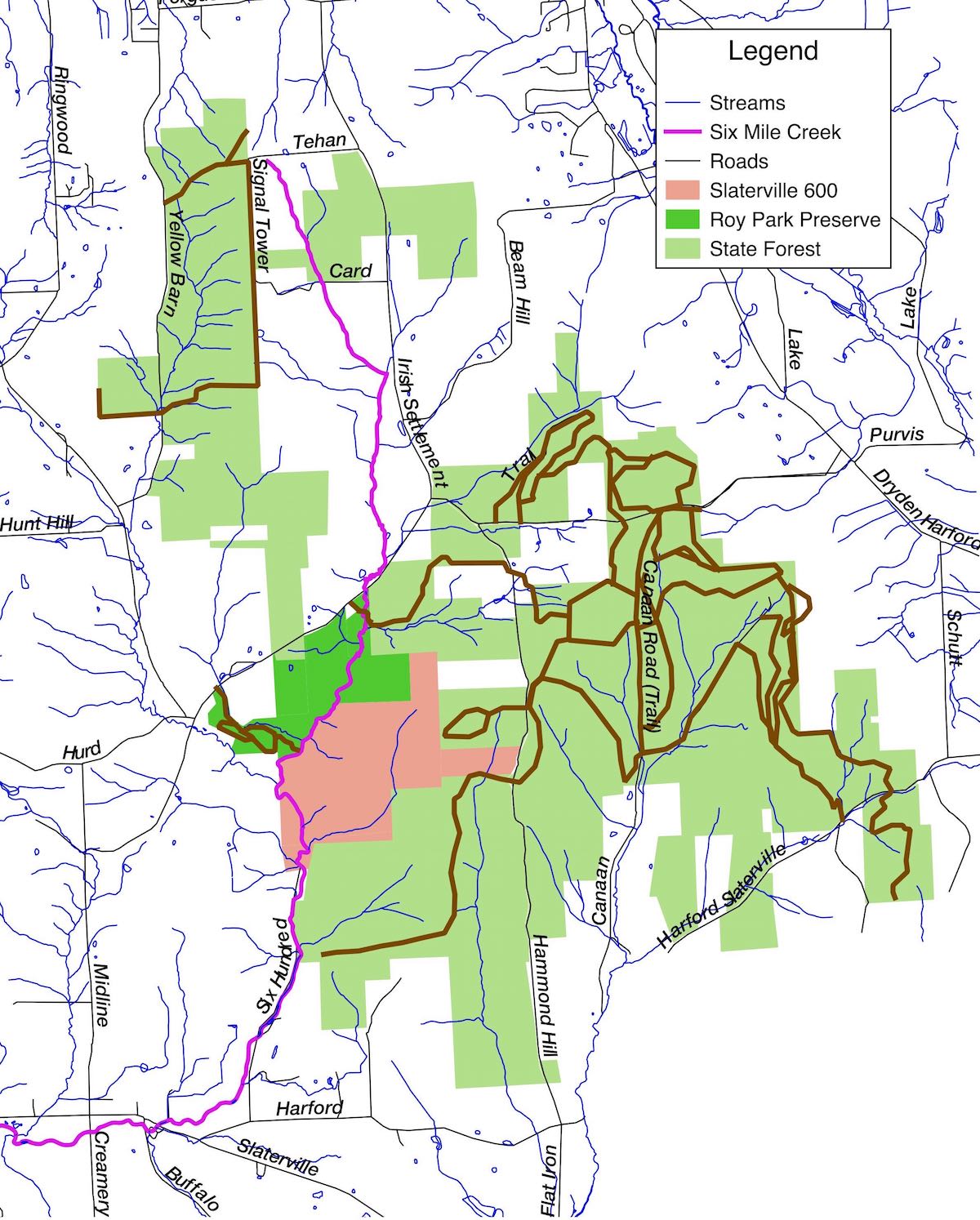
“Forests in America were first looked upon as enemies to agriculture. The ax was a weapon instead of a tool. Very few first trees remain but when one is beheld and you can visualize the original countryside covered with such giant growth the effect is almost overwhelming. It was indeed a world beyond present-day comprehension”1
The old-growth forests surrounding the headwaters of Six Mile Creek are gone. Nineteenth century farms replaced them, but during the depression many farms were abandoned.
A large area near the headwaters of Six Mile Creek has been preserved by Cornell University, the Finger Lakes Land Trust, and New York state forest.
“Yellow Barn State Forest is a large State Forest area with many multi-use trails for hiking, biking, and cross country skiing.”
“The Slaterville Wildflower Preserve is part of a larger forested area known locally as the ‘Old 600’ or ‘Slaterville 600’. The name refers to the size of what was once a magnificent old-growth forest. The parcel was a military lot of 600 acres, or slightly less than one square mile. These lots were given to soldiers of the Revolutionary War in lieu of payment. The old-growth forest was once a favorite nesting site for the now extinct passenger pigeon.”3
“The Roy H. Park preserve is a scenic and inviting 241 acre preserve…. It encompasses portions of an extensive forest, rolling meadows, wetlands, and a rugged stretch of Six-Mile Creek.”4
- Eric Sloane, Our Vanishing Landscape, p.10.